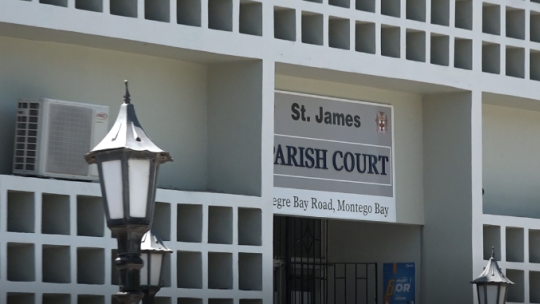Court rules St. James Parish breached state law by holding secret meetings over proposed chemical plant
Published 7:49 pm Friday, January 10, 2025

- St James Parish Courthouse
|
Getting your Trinity Audio player ready...
|
A district court judge ruled that St. James Parish violated state transparency laws by holding secret meetings with Wanhua, a Chinese company, to discuss a chemical plant proposal. Parish officials conducted these meetings without a quorum of its members.
Judge John H. Smith stated the Planning Commission and Parish Council “intentionally structured meetings to avoid a quorum” during two consecutive meetings on May 14, 2019, just days before approving Wanhua’s application.
In a 14-page judgment signed Jan. 2, he wrote that “citizens of St. James were not afforded the opportunity to be present while Wanhua’s application was being discussed by Commission and Council members.”
He also found that the meetings were set up to prevent a majority of either panel from showing up, which constituted illegal “walking quorums” since they circumvented the law’s intent.
Meetings were held under then-Parish President Timmy Roussel. The Parish Council and Planning Commission had different memberships than today.
The plaintiffs said they didn’t discover the secret meetings until emails emerged after the fact through public records requests.
After public hearings and a lawsuit filed by the Tulane Environmental Law Clinic on behalf of the plaintiffs regarding the July 2019 meetings, the council returned the plan to the commission.
According to state law, when members of a government panel convene, these meetings are generally public. They must provide prior notice of the agenda and allow time for public comments.
The Planning Commission had already held several meetings during secret informational sessions to discuss the company’s plans and community concerns about dangerous chemicals stored in the facility.
The informational sessions were held days before a key and divided Planning Commission vote that sent the plan to the Parish Council for a final decision.
In 2018, the Chinese company Wanhua Chemical proposed building a chemical plant on 250 acres near the majority Black community off La. 3125.
In September 2019, Wanhua withdrew its plans due to public opposition and tariffs from the Trump administration that nearly doubled construction costs. The company later tried to relocate to Westwego but lacked local support.
Smith noted that a parish invitation sent by the meeting’s organizer, then-parish operations director Blaise Gravois, informed attendees that the public was not invited.
Six of 10 commissioners and five of seven councilmen attended both sessions. Wanhua officials, Gravois, consultant Bliss Higgins, and attorney Victor Franckiewicz Jr. also participated, according to the ruling.
Smith declined to levy civil penalties against the parish officials or issue an injunction sought by the plaintiffs barring similar gatherings in the future.
“The defendants are now well aware of the concept and application of a ‘walking quorum’ as it relates to (state law),” Smith concluded.
In a statement, the plaintiffs argued that the parish’s unlawful actions “reflect a larger ongoing issue” and constitute “a betrayal of fundamental principles of good governance and environmental justice.”
“The secret meeting held by St. James Parish officials to discuss the Wanhua Chemical facility was not just a violation of the Open Meetings Law; it was a betrayal of the very principles of good government and environmental justice,” says Sharon Lavigne, founder of Rise St. James, a co-plaintiff on the lawsuit. “I’m pleased that the judge ruled in our favor by declaring St. James Parish violated the law.”





